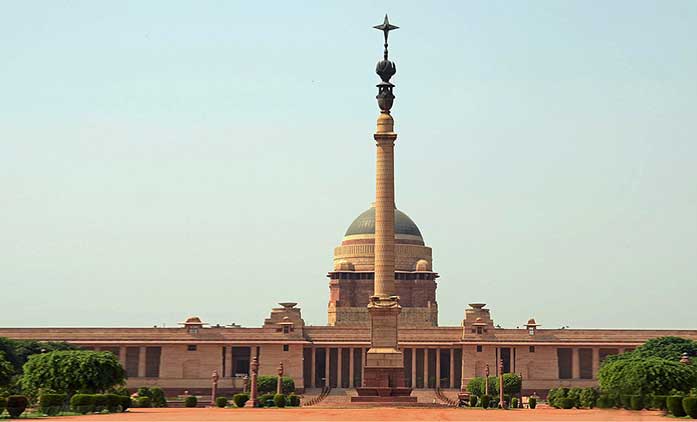Polling for Presidential Election underway
Polling for Presidential Election is underway. Prime Minister Narendra Modi was among the first to cast his vote to elect the next president of India

New Delhi: Prime Minister Narendra Modi was among the first to cast his vote to elect the next president of India here today.
Voting began at 10 AM and will continue till 5 PM.

Prime Minister Narendra Modi and BJP President Amit Shah casted their vote for presidential ellections in Parliament. Polling is underway arround the country.

Uttar Pradesh Chief Minister Yogi casted his vote at UP Assembly .
Also Read |
Yechury on Presidential polls: MLAs, MPs should vote for who their conscience speaks for

DMK working president MK Stalin casts his vote at Tamil Nadu Assembly.
A total of 32 polling stations -- one in Parliament House and one each in the state legislative assemblies -- have been set up, officials said.
The Election Commission has appointed 33 observers who are overseeing the conduct of the election. While two observers are present in Parliament House, one each is deployed in the respective state assemblies.
The results will be declared on July 20 in New Delhi.
The electorate, comprising elected Lok Sabha and Rajya Sabha members and members of state assemblies, is tilted in favour of the NDA, but the opposition is working to seek support of some regional parties in favour of its candidate.
The two contestants for the post of the country's next president are NDA's candidate Ram Nath Kovind and the opposition's Meira Kumar.

The tenure of incumbent Pranab Mukherjee, the 13th president of India, ends on July 24.
Also Read | Swamy: Kovind chosen due to his qualities, not because he is a Dalit
The electoral college, which elects the president through the system of proportional representation, comprises MPs and members of state legislative assemblies.
A total of 4,896 voters -- 4,120 MLAs and 776 elected MPs -- are eligible to cast their ballot. MLCs of states with legislative council are not part of the electoral college.
While the Lok Sabha speaker, an elected member, can vote, the two nominated members in the Lower House from the Anglo- Indian community cannot. The 12 nominated members in the Rajya Sabha are also ineligible.
Since the election is through a secret ballot, the parties cannot issue a whip to their members to vote for a particular candidate.
Thirteen vacancies in Lok Sabha and state assemblies will be filled up after the presidential elections.
The NDA, led by the BJP, has 5,37,683 votes, including the Shiv Sena, and the shortage is around 12,000 votes.
The promised support from the BJD, the TRS and the YSR Congress and likely backing from the AIADMK factions could offset the shortfall of the presidential votes by a substantial margin.
This time, the Lok Sabha secretary general is the returning officer. Last time, it was the secretary general of the Rajya Sabha.
The Election Commission has barred MPs and MLAs from carrying their personal pens inside the voting chamber. They will have to mark their ballot with specially designed marker pens.
 Dynamite News
Dynamite News 